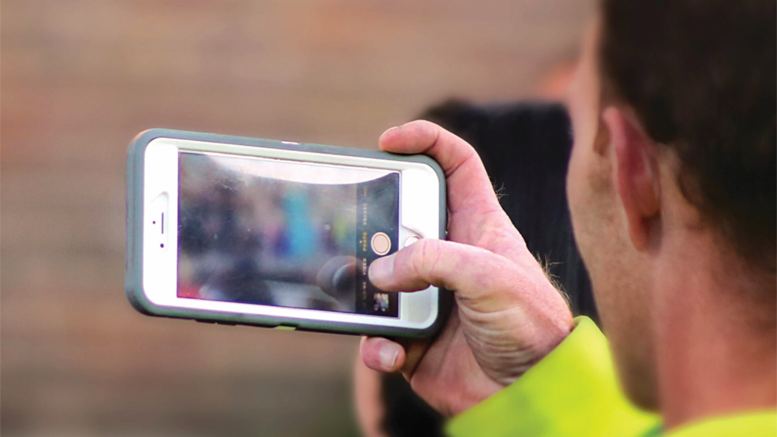Self-Care Tips not to Overlook
By: Mikey Rox/Special to TRT—
Life comes at us fast, and it’s getting easier and easier to get lost not only in our circumstances but also in the world around us. Work, friends, family, politics, relationships, past relationships – they all affect us, and not necessarily in a beneficial-to-our-well-being kinda way. That’s why it’s important to step back from it all on a regular basis, take stock of our own physical, emotional and mental health, and give ourselves the self-loving we need. Here are seven ways to start today.
- Cut the bull$hit and get back to basics
Sometimes you just need to reset, and that means concentrating on your necessities instead of the frivolous BS that consumes your time and energy and, in all likelihood, makes you love and enjoy yourself even less. Clear your head. Get enough sleep. Drink more water. Eat healthier. Exercise several times a week. These are your start-over essentials; none of the other crap matters until your most primitive requirements are met to the best of your ability.
“In addition, start each day with a self-care moment,” adds work-life balance expert Suzanne Brown. “Don’t check your phone first thing to avoid kick-starting your stress. Instead, do a mental self-care check-in before you get out of bed. Take a few moments to see how you’re feeling. Then you can make mental adjustments so you’re in a better mindset for the day. It will help in your interactions with your family and co-workers.”
- Set a daily reminder to take a deep breath
I listen to Elvis Duran and the Morning Show on Z100, and one of the co-hosts reminds listeners every hour of the show to take a deep breath. I look forward to it every day. Totally one of those things we take for granted, but which can help out a great deal when we’re feeling stressed.
Certified health coach and yogi Angela Rocchio agrees.
“Breathing deep is one of the best ways to lower stress in the body,” she says. “This is because when you breathe deeply it sends a message to your brain to calm down and relax. The brain then sends this message to your body, which slows down your heart rate and decreases your blood pressure.”
To maximize the effects of your deep-breathing routine, Rocchio suggests sitting comfortably with your eyes closed after setting a timer for two to three minutes. Allow yourself to inhale and exhale; do each for the count of five seconds.
“Try not to judge yourself for being distracted when distractions come up,” she continues. “Our brains are just doing their job. When distracted, bring yourself back to the breath. It gets easier over time. Just know that we all struggle with it–even those that have been practicing meditation for years.”
- Power down and shut those screens off
I’m a slave to my screens, and you probably are too. That’s precisely the reason why I need to go on a social media hiatus occasionally – at the very least deleting the apps from my devices, but sometimes deactivating my accounts temporarily so I don’t tempt myself so easily. It’s worked in the past, and I feel infinitely lighter than when my face is glued to Facebook and Twitter, allowing myself to be affected by all the soul-eating negativity day in and day out.
Dr. Colleen Carroll, bestselling author of Hooked on Screens, details more of the detrimental effects of our digital addiction.
“Adults check their phones approximately 150 times a day,” she reveals. “This is shortening our attention span, creating a tech dependence and instant gratification cycle with social media and gaming, and, at the very least, causing ‘tech neck’ and other back problems.
“Our relationships are suffering, too. We don’t talk to our spouses as much, and we communicate with most friends via Facebook instead of picking up the phone. Strong interpersonal relationships are the key to a healthy emotional state at all stages in life. Screens are interfering with making and keeping friends.”
Start small–maybe an hour or two a day–and expand your time offline as you feel necessary. Put your devices away an hour before bed, too. It’ll help your brain relax and get into sleep mode for a more restful night.
- Escape and let yourself be free
Physically escape when you can–even a quick vacation can revitalize you – but also allow yourself to be yourself, and that might be off the beaten path. For instance, when I’m feeling particularly stressed and compressed, I like to get naked. But that doesn’t have to mean sex. Happy-ending massages and nude beaches are a great way to kick back and unwind, but I’ve also enjoyed getaways to clothing-optional resorts, like the Grand Resort and Spa in Fort Lauderdale, where I can let it all hang out with privacy without anybody batting an eye. (A wink my way never hurts though.)
- Find the sunshine – inside and out
Make a list of all the great things about yourself and everything that’s going right in your life–even if it’s just a few things. Review that list and remember that while it may seem like you have it bad (or maybe not as good you’d like), there are people out there who have it much worse. Chances are you’re actually quite blessed with your lot in life, comparatively. When you put it into that sort of perspective, you won’t have much left to complain about.
Get out into the sun too–with a proper SPF, of course. It’s scientifically proven that exposure to the sunlight improves our mood, among many other benefits, so when you’re feeling down, seek the ’shine.
- Learn to love being alone with yourself
I’m an extremely social person, but I schedule “me” time at least once a week. Usually that means taking my pile of magazines to Starbucks to read, but I’m a huge advocate of doing all manner of things alone, including having lunch with me, popping into a nice restaurant for a couple glasses of wine with me, and seeing movies with me. I really enjoy it, because I’m a big fan of me. It’s time for you to be a big fan of you, too.
- Practice gratitude, every day
We all have so much for which to be grateful, but we rarely recognize it–and that has to change.
“Studies show that practicing gratitude has a multitude of good effects, and writing down what you’re grateful for each day can be particularly rewarding as well,” says Amy M. Gardner, certified professional coach with Apochromatik. “But even if the most you can muster is thinking of one thing each morning in the shower, do it. You can improve your mindset and outlook with just that simple exercise.”
Words to live by.
*Mikey Rox is an award-winning journalist and LGBT lifestyle expert whose work has been published in more than 100 outlets across the world. He splits his time between homes in New York City and the Jersey Shore with his dog Jaxon. Connect with Mikey on Twitter @mikeyrox.







